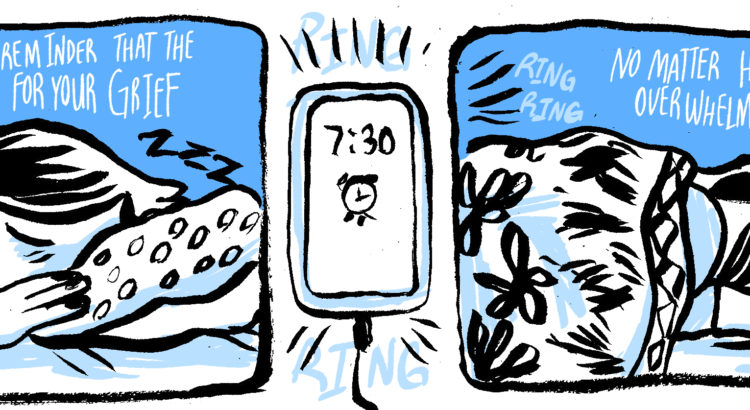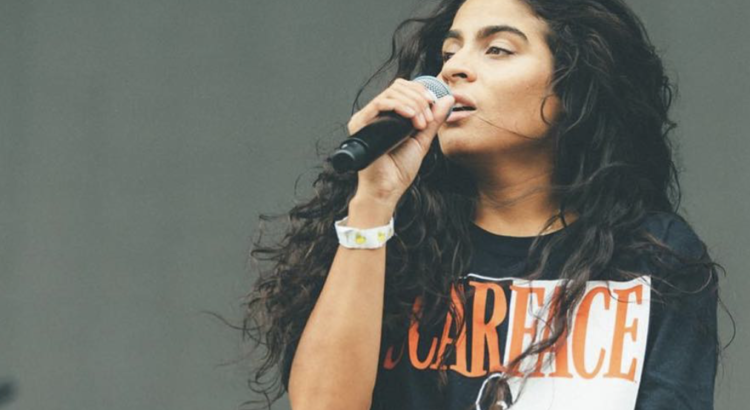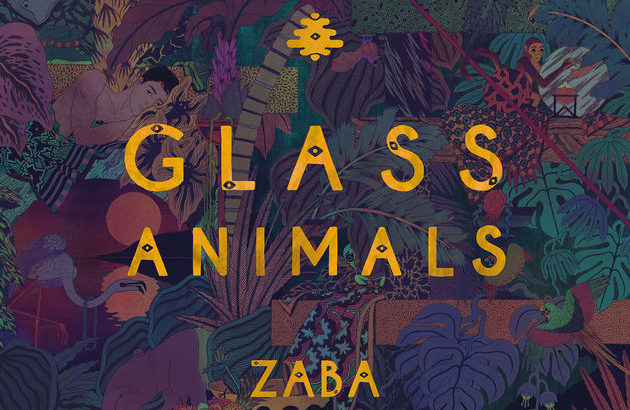

Hey again! This is a little less slice of life but I’ve been getting into The Pretenders lately and I wanted to write a little comic about them. Also please listen to “Back on the Chain Gang”, it’s a jam and a half!!!




Hey again! This is a little less slice of life but I’ve been getting into The Pretenders lately and I wanted to write a little comic about them. Also please listen to “Back on the Chain Gang”, it’s a jam and a half!!!

On March 8th, rap artist Juice WRLD (who gained popularity from his single Lucid Dreams) dropped his latest album, called Death Race for Love. The album cover is what caught my eye; it’s in the style of an old PlayStation 2 video game, which made me feel a major sense of nostalgia for the older days. I gave it a listen, and I was surprised to find that it started off strong, with catchy hooks and simple instrumentation. And then I realized there were 22 songs on it. Who in their right mind thought it was a good idea to make an album with 22 songs? Not to mention some of the songs are incredibly short, and the average is about 3 minutes, which is nothing to boast about. Needless to say, I got bored around the halfway mark; I couldn’t distinguish one song from another and I couldn’t even tell you the names of them. It got me thinking though; what is the appeal of an album like this? How is it supposed to be listened to? And that brings me to the recent trend of emo rap.
The pioneers of this movement were XXXTentacion and Lil Peep, who have both passed away within the last two years. They were known for simple, melodramatic music, but more importantly for their personalities and presentations. They both gained a large musical following, and their deaths were incredibly tragic. However, rappers like Juice WRLD have carried on what they started. Namely, music that combines the simplicity and lyricism of rap with the themes and ideas of emo culture. Emo culture is a topic in itself entirely, so I won’t try to engage that too much, but basically these rappers appeal to the sadder side of people.
Taking this into consideration, it’s easier to see why Death Race for Love is so long and uninteresting musically: the emphasis is on developing a gloomy, mournful, and emotion heavy atmosphere. It’s something you put on in the background when you’re feeling a little down, or on a rainy day when you’re stuck indoors. It’s consistent and without surprises, which makes it perfect for background music. To me, this is a shame; no music should just be reduced to background music. Music is art and should be appreciated as the center of attention. However, viewing the album in this way helps me better understand its appeal, and actually enjoy it. I can’t say there’s anything inherently wrong with Death Race for Love, or really any other emo rap album that has this appeal. They have a purpose and they achieve it well, even if it’s a bit self-deprecating. In the long run, I don’t think these albums will be classics, they’re just too forgettable. But I do think they’re part of a unique movement, and I’m sure it will only get more interesting in the future.
(Image Credits: Google Images)

If you are a casual listener to pop radio you have probably heard the song Figures. However, do you know the artist behind the smooth and powerful melody, Jessie Reyez? This brilliant and blazing woman was born and raised in Ontario, Canada, by Columbian parents. Her father taught her how to play guitar at a young age and in high school she started writing songs. When she was seventeen, Jessie endured her first real breakup and poured her emotions into her writing and music. She has written about the pain and hurt she experienced and how she wants to reciprocate it but doesn’t. Although never going through a harsh breakup, listening to these songs makes me feel like I have. The vibe and mood combined with her well written lyrics allows me to connect with her experience and connect it to myself. In addition in some of her songs, one can see her strong personality, and how she is an individual who cuts negativity out of her life and carves her own path.
Reyez has a raspy voice that can change from a low smooth sound to a soulful high pitched ring. Some may find her voice annoying and others will listen and hear an exposed and organic god-like sound. Her songs are poetic and her decisions of where she sings low to high makes each song powerful. In the song Apple Juice, the rhythm she created and the words she sings makes you want to sway and shout out the lyrics. Jessie Reyez’s songs can vibrate through your whole body and her words make you feel understood and connected. Her recent EP release, Being Human In Public, is a raw depiction of her emotions. I 10/10 would recommend listening to it in a car with the windows down and driving over a bridge. Shouting the words is also encouraged.
Jessie Reyez creatively writes her songs while staying true to herself. She adds artistic flare with her unique voice but also by incorporating her true feelings although they might be judged. In addition, on her recent EP album, she has a song Sola, sung and written in Spanish. Although in another language, an individual can easily infer it is Reyez by not only the sound but her style and message. I cannot speak or understand Spanish but Sola is one of my favorite songs by her. Her emotion and melody make me feel pain and love. I like to close my eyes and sway when listening to the soft and bold piece.
Reyez has attracted fans internationally through her feminine bops and powerful responses about life. She has been nominated for many best new artist of the year awards and has won the Juno Award for Breakthrough Artist. Her followers have escalated to one million on instagram in the past year, and she will continue to grow with special character.
The closest thing to music in my young life was the recitation of the Holy Quran. My family was not particularly inclined to art or music or performance in the conventional sense, but we relished the joy of listening to what we believed uplifted the soul and the mind. We knew, listening to those words, that they held meanings and messages far beyond what our thoughts could conceive; we didn’t understand the Arabic, but trusting that the melodic recitation held more than mere pleasantry gave it a feeling of earth-shattering importance.
Growing up in a religious household, I was also taught what was beautiful was inherently meaningful– art which held only carnal delight was wasted in frivolity and irrelevance. The most powerful and beautiful things hold messages, meaning, morality; they transcend time and place and people and belong to a narrative greater than ourselves, and reveal truths delicate, yet universal. This definition fit perfectly into our conception of Quran recitation, as we believe it was speech ordained from God himself.
All the other music we listened to– old Indian songs my dad would play nostalgically, reality singing competitions my mom sometimes watched, or the fad pop music that weaved in and out of our lives– was hardly relevant. It was mindless entertainment.
Only a few years ago did I really challenge the notion that what I heard was mindless or meaningless. Of course, the Quran kept its pedestal, but all manmade art begged me to reconsider its value. I have always loved stories, and storytelling, and writing– I believe it is as embedded into my identity as the blood in my veins. And for the first time, I discovered musical theatre and learned that music could tell stories. I learned it could fill me up with anticipation, deflate my senses in sadness, burst sporadically into joy and fear and anger. I learned it, too, could tell a form of the truth.
I think it was sort of destined for me to fall in love with an art form that breathed words to life and life to stage. I had read more books than I could remember, befriended more characters than friends in real life, and so the theatre felt real to me. I also couldn’t help but marvel in the multifaceted art forms that clashed in its creation, to give it meaning and depth beyond which could have ever been conveyed in a single medium. Even just the musical aspect of it was indivisible from all the other elements: acting, lyrics, stage design, costumes, plot, characterization. The music was literature personified wordlessly.
Who I am as an individual strongly affects my relationship with art and music. I am a writer of poetry, of novels, of spoken words, of short stories, and music and cadence affect and enliven my written experience. I love musical theatre, and that deepens my appreciation of music as storyteller. And in my personal definition, the greatest music tells a story– it is threaded in a larger narrative and reveals a truth about our shared existence. I realize now that all art and performance must be held in a revered position. We must believe in its holiness, as my family did with the Quran, and trust that it shows us, above all, what it means to be human.

Zaba is the debut studio album of the band Glass Animals, and was released in 2014. It is also an incredible work of art and a testament to the power of concept albums to create an entire universe inside a single musical space. This album is especially unique in how it pushes the envelope: from the samples used to create the rhythms and flows to the abstract lyricism. The “concept” of this album is fairly loose, and that’s part of what makes it so surreal. It focuses on creating a jungle setting by using rich bass backgrounds and a variety of plucky leads, along with animal samples, such as bird calls, throughout. It accomplishes this effect so well in every single song that it’s almost uncanny: listening to it you almost feel like you’ve entered a parallel dimension, where colors swirl and drums pound from all around you. The drums and pounding rhythms contribute a large part to this feeling, especially on songs such as Wyrd, JDNT, and Psylla. You can’t help but sway to the music; it has an almost hypnotic effect. However, as you’re caught up in the incredible atmosphere of the album, you’ll miss the other unforgettable aspect of it: the surreal lyrics.
Now the lyrics are probably my favorite part, and really sets them apart from other strange bands. Once you start listening, you’ll realize that most of it is well-formatted gibberish. A few sentences of coherent thought, maybe a single linking thread between them, about something vague and shapeless. The magic of this album is getting lost in its universe, and the lyrics are essential to that: they disconnect you from reality; they lull you into different state of mind. Surrealist art often focuses on the subconscious, exploring the dormant world beyond our conscious minds. Often these works use juxtaposition to startle the viewer and contradict their reality, evoking a feeling of uncertainty and creating an atmosphere that simply can’t be described. In much the same way, I think Zaba embraces the surrealist mindset and brings it to the world of music in a startling fashion. The lyrics transcend traditional music and challenge the listener’s reality; the production is hypnotic and unearthly; the singing is soft and seductive; and the jungle atmosphere is so convincing and strange that you’ll get lost and never be able to find your way out. All in all, it’s an incredibly memorable album that has endless replay value, and I highly recommend giving it a listen. It stands alone as a truly atmospheric concept album, and I think it’s a great example of how powerful concept albums are as works of art.
(Image credits: Google Images)

Somebody has to say it: Twenty One Pilots isn’t as good as they used to be. After listening to their newest album, Trench, I was taken aback by how synthesized and monotonous the band was sounding. The band I loved made cutting-edge music with clever lyrics and interesting instrumentation; this band was boringly consistent with repetitive lyrics and a choppy delivery. I started to wonder what happened; where did they go wrong?
This question brought me back to the best album they’ve ever made: Vessel. Released in 2013, this album features classics such as Ode to Sleep, Guns for Hands, Car Radio, and House of Gold, which show off the genre-pushing ideas the band was capable of. From the almost symphonic layout of Ode to Sleep with it’s grand transitions and build up, to the simple and wholesome House of Gold, featuring an iconic ukulele (which didn’t make it into Trench), the band was unique in almost every way. The lyrics were often clever, and although they could be dark and introspective, they never tried to be edgy; they were sincere. This album brought a large amount of well-deserved attention to the band, and their next studio album was an even bigger success.
Released in 2015, Blurryface gained popularity due to catchy and rhythmic songs like Ride and Stressed Out. As a result, the band entered the mainstream culture and was even played on the radio (ironic when you listen to Fairly Local). At first I couldn’t stop listening, but this album certainly didn’t age as well as Vessel. I noticed it the more I listened: the songs were formulaic. A majority of them featured prominent electronic melodies, edgy lyrics, and stripped down instrumentation. They were pushing the envelope for sure, but in the wrong direction, not to mention the lyrics were much more repetitive than those in Vessel. I wasn’t really upset about Blurryface, just disappointed. I figured they were just trying to appeal to a more mainstream audience and I couldn’t blame them for that. However, by the time they started releasing singles off of Trench, something had gone too far.
These songs were so ridiculously edgy and cliche, it was almost unbearable. From the constant references to death and depression, to the empty critiques of “culture”, you could tell they had lost their original spirit. Most likely, they saw how popular their darker songs on Blurryface were and they ran with it, essentially filling the void of the “edgy” band. In the short-run it’s no big deal, but I guarantee Trench won’t have the same longevity as Vessel: the newer fans of Trench are going to get tired of the edgy vocals and repetition and move on, while the older fans will still be listening to Vessel. Moving forward I’m curious to see where they go; they might prove me right by dropping another repetitive and monotonous album, or maybe they’ll surprise me with a revival of the energy that made them so great. Either way I’ll be keeping an eye out, because at the end of the day, they’re still one of the most interesting bands around.
(Image credits: Google Images)